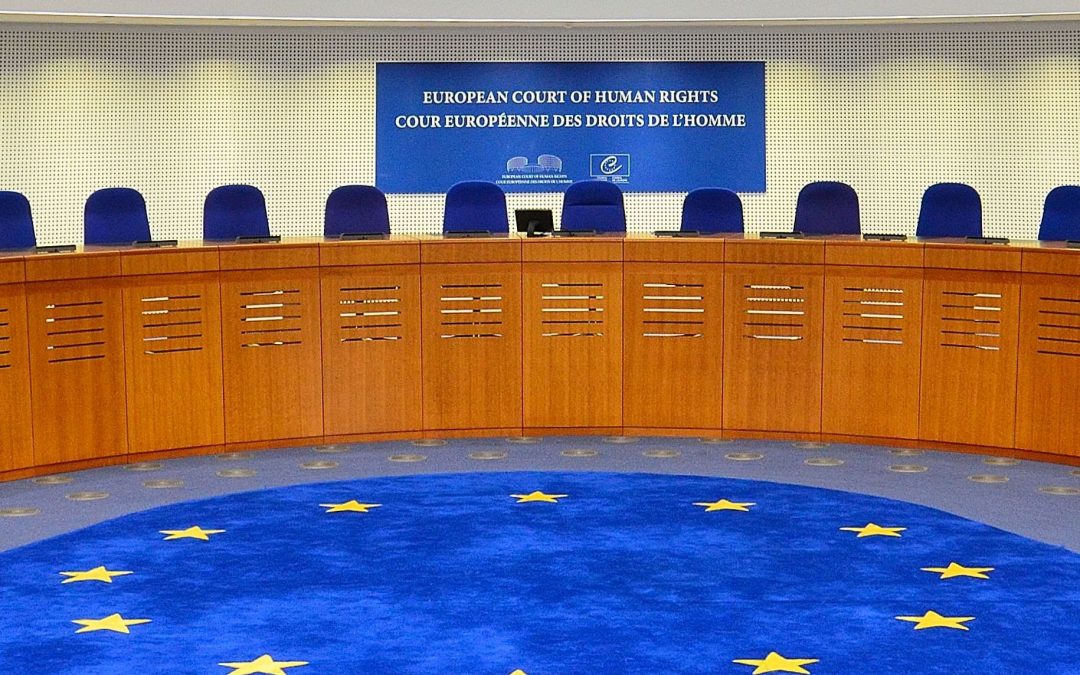
7 Jun 2019 | Commentary on Lord Sumption's Reith Lectures
In his third Reith lecture, broadcast yesterday and entitled “Human Rights and Wrongs”, Jonathan Sumption examines international human rights law, “the main battleground between law and politics”. His strategy is to consider the nature of rights before explaining...

30 May 2019 | Commentary on Lord Sumption's Reith Lectures
In his second Reith lecture, “In Praise of Politics”, broadcast on Tuesday, Jonathan Sumption aims “to make the case for the political process, with all its imperfections.” He develops a forceful argument for the capacity of representative politics to secure...

22 May 2019 | Commentary on Lord Sumption's Reith Lectures
Judges are ever more significant in our public life. This was true before the Brexit process began and it will remain true even if the UK leaves the EU. Courts, domestic and European, have come to exercise ever more authority over an ever wider range of public...

14 Feb 2019 | Legislated Rights
The guiding aim of legislatures should be to protect and promote human rights. This might seem a common sense or obvious proposition. But there are some theorists and judges who reject it, holding that human rights are the province of courts while the task of...

14 Feb 2019 | Legislated Rights
Legislated Rights makes an important contribution to contemporary rights scholarship. Taking the Universal Declaration of Human Rights as its starting point, it explores how legislatures can and should play an active role in ensuring that people enjoy rights, not just...

14 Feb 2019 | Legislated Rights
The central thesis of this profound and thoughtful book is the crucial role of the legislature in securing and promoting human rights. The arguments command strong assent. There are many, many parts of it which are fundamental and devastating. There is, however, an...

14 Feb 2019 | Legislated Rights
I very much welcome the book’s overall theme that legislation gives effect to and protects human rights. It seems incredible that the UK’s leading judge should have thought that until the advent of the European Convention of Human Rights in 1951 UK law did not...

14 Feb 2019 | Legislated Rights
Legislated Rights is an important and essential addition to the library of anyone seeking to better understand the potential role of and justification for legislatures engaging in the protection and promotion of human rights. By skillfully explaining and building upon...

14 Feb 2019 | Legislated Rights
Legislated Rights: Securing Human Rights through Legislation challenges ideas that find ready support in the case law of European and Commonwealth courts and the academic literature. We are grateful to our distinguished commentators, who have a wealth of judicial...

29 Jan 2019 | Constitutional Rights and Constitutional Design
I am enormously grateful to the distinguished judges and scholars who have read and engaged with my book Constitutional Rights and Constitutional Design, and appreciate both the praise and criticism. In this reply I respond to some points they raise. As I write, news...

13 Dec 2018 | Constitutional Rights and Constitutional Design
The global expansion of judicial power means that courts around the world are increasingly called on to settle matters of moral and political controversy, including assisted suicide, data privacy, anti-terrorism measures, marriage, and abortion. But doubts regarding...

13 Dec 2018 | Constitutional Rights and Constitutional Design
Almost every country in the world has legislation that prohibits physician-assisted suicide. The UK Parliament voted overwhelmingly to maintain its prohibition of the practice in 2015 (330 to 118), but the law has been challenged in recent cases (Conway and...

13 Dec 2018 | Constitutional Rights and Constitutional Design
Paul Yowell’s Constitutional Rights and Constitutional Design is a superb book, with a kind of lapidary intelligence. I think it advances the conversation in two ways, methological and substantive. Methodologically, it pursues the comparative-institutional method,...

13 Dec 2018 | Constitutional Rights and Constitutional Design
Constitutional Rights and Constitutional Design is a wonderful book – full of riches, concise, tightly argued, and carefully interwoven. It is itself a model of careful design as well as a study of the absence (or failure) of constitutional design and a prescription...

13 Dec 2018 | Constitutional Rights and Constitutional Design
Sed quid custodes ipso custodiet? Who will guard the guardians? The question is not posed until nearly the end of this impressive new book, but it is clear from the outset that Paul Yowell is animated by a deep concern about the exercise of judicial power. He taps...

13 Dec 2018 | Constitutional Rights and Constitutional Design
Do courts and judges have the institutional capacity needed to settle the kinds of morally and politically controversial issues that arise in constitutional rights cases? Paul Yowell argues that the institutional setting of a court is lacking in basic capacities for...

13 Dec 2018 | Constitutional Rights and Constitutional Design
Ι Justice Scalia’s criticism of the ‘living Constitution’ interpretive theory highlighted the dangers facing the democratic process from the judicial approach whereby terms used in the Constitution are perceived, not in the sense they had when they were adopted, but...

22 Mar 2018 | Human Rights and Political Wrongs
In his recent study for Policy Exchange’s Judicial Power Project, Sir Noel Malcolm (All Souls College, Oxford) considers European Human Rights law and finds it wanting. The European Court of Human Rights, he argues, operates on principles that are incoherent and...

22 Mar 2018 | Human Rights and Political Wrongs
I am very grateful to these five distinguished authors (Professor Finnis, Baroness O’Neill, Lord Phillips, Professor Tasioulas and Professor Verdirame) for taking the time and trouble to comment on my work. Without writing at even greater length, I cannot deal with...

13 Mar 2018 | Human Rights and Political Wrongs
The Human Rights Act (HRA) has been a centrepiece of the British Constitution for almost twenty years. The idea that, over 300 years after the 1688 Bill of Rights, Britain should have a new bill of rights was laudable. But its implementation was a failure of legal and...

9 Mar 2018 | Human Rights and Political Wrongs
Chapter 5 of Sir Noel Malcolm’s Human Rights and Political Wrongs examines leading moral-philosophical theories of human rights and issues a damning verdict. Their advocates, according to Malcolm, are just ‘whistling in the dark’. By contrast, he...

8 Mar 2018 | Human Rights and Political Wrongs
Human Rights and Political Wrongs gives us an unrivalled explanatory checklist of the ways in which the European Court of Human Rights (and so any court that takes its cue from the ECtHR) has expanded the power of judges to declare that laws adopted in a civilized,...

7 Mar 2018 | Human Rights and Political Wrongs
In this book Sir Noel Malcolm advances three propositions. The first is that there is no moral or philosophical basis for human rights; they are essentially political. The second is that the jurisprudence of the Strasbourg Court has been unsatisfactory. The third is...

6 Mar 2018 | Human Rights and Political Wrongs
Noel Malcolm is surely right both that human rights standards are important, and that accounts of human rights are currently in some trouble. I think that he is also right that some of these troubles have been brought about not by those who are hostile to or who...

2 Mar 2018 | Judicial Review and Judicial Independence
In a new paper for Policy Exchange’s Judicial Power Project the Honourable Dyson Heydon AC QC, former Justice of the High Court of Australia, asks Does Political Criticism of Judges Damage Judicial Independence? In the paper, Mr Heydon challenges the conventional...






























